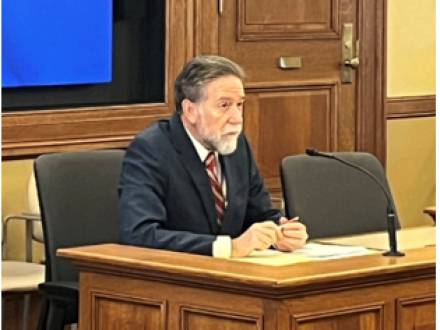Recent Blog Posts
How Should a Physician Manage the Discovery of Off-Hour THC Use?
 By Attorney Adam J. Schleis
By Attorney Adam J. Schleis
Physicians in Wisconsin work long hours, handle life-and-death situations, and carry enormous responsibility. During off hours, many practitioners use THC to manage stress, pain, or simply to relax. Most of these professionals never use marijuana before or during work, and take care to ensure they are clear-headed when treating patients.
Perhaps one day, a colleague or patient makes an offhand comment suggesting an MD or surgeon seems impaired. An employer orders a drug test. The test comes back positive for THC. Suddenly, a physician’s medical license and entire career are at risk.
How Is Child Support Determined When Parents Are Unmarried?
 When unmarried parents separate, child support can feel complicated and confusing. Unlike divorce cases where the court automatically addresses child support as part of the proceedings, unmarried parents must take specific legal steps to create enforceable support orders.
When unmarried parents separate, child support can feel complicated and confusing. Unlike divorce cases where the court automatically addresses child support as part of the proceedings, unmarried parents must take specific legal steps to create enforceable support orders.
According to the U.S. Census Bureau, more than 40 percent of children are born in the United States to unmarried parents. In Wisconsin, thousands of unmarried parents navigate child support issues every year. Whether you are seeking support for your child or facing a support obligation in 2026, knowing how the system works is the firm step. Our experienced Milwaukee child support lawyers are here to help.
Do Unmarried Parents Have the Same Rights as Married Parents?
Unmarried parents generally have the same legal rights and responsibilities as married parents when it comes to their children. Both parents have the right to spend time with their children and participate in important decisions about their upbringing. Both parents also have the legal obligation to financially support their children.
Exonerated Compensation Reform Bills Are Once Again Pending Before the Legislature
Ray Dall’Osto testifying before Senate Judiciary Committee in support of SB 577 on Dec. 17, 2025.
GRGB and its Milwaukee criminal defense team lawyers have long been involved in efforts to obtain the release of wrongfully convicted persons and help them seek and obtain compensation for wrongful incarceration. These efforts include not only direct representation in court with postconviction motions and appeals, but also representing exonerees with claims for exonerated compensation and joint efforts with the Wisconsin Innocence Project to obtain the release of wrongfully convicted individuals.
However, being exonerated of a crime is just the beginning. Upon release, sometimes after decades of wrongful imprisonment, exonerees are left with little or no resources to rely on as they re-enter society. Over a century ago, Wisconsin became the first state to pass laws to compensate individuals who were wrongly convicted, but those laws have not been updated in decades. Now Wisconsin’s limits on compensation are the lowest of any such statute in the nation.
When May Child Support Payment Obligations End in Wisconsin?
 In every divorce, legal separation, or paternity case involving children under age 18, the court will determine child support payments. After a court has entered an order for child support, the parent paying child support must continue doing so except in very specific circumstances. Not paying child support can lead to serious consequences, including criminal charges.
In every divorce, legal separation, or paternity case involving children under age 18, the court will determine child support payments. After a court has entered an order for child support, the parent paying child support must continue doing so except in very specific circumstances. Not paying child support can lead to serious consequences, including criminal charges.
Very few parents do not want to financially support their children, but child support payments don’t always seem fair. Sometimes the parent making payments feels like they are too high or that the money isn’t being spent on the child. Perhaps the parent who receives the payments still doesn’t have enough to make ends meet, or is always having to chase down payments.
Whatever your situation may be, if you are dealing with child support payments in 2026, you need to know when and how they can be charged or terminated. Our Milwaukee child support attorneys help parents tackle even the most complicated child support issues. Call us today to talk about your case.
5 Property Crimes You May Not Know Are Felonies
 Most people charged with property crimes in Wisconsin are not career criminals. Many are college students, young adults, or people who have never been in trouble before. Sometimes the crime stems from a stupid decision at a party. Sometimes it is a misunderstanding between friends. Sometimes it is a prank that went too far.
Most people charged with property crimes in Wisconsin are not career criminals. Many are college students, young adults, or people who have never been in trouble before. Sometimes the crime stems from a stupid decision at a party. Sometimes it is a misunderstanding between friends. Sometimes it is a prank that went too far.
If you are a parent reading this, you may be panicked and confused. If you are a young adult reading this, you may be scared and embarrassed. These reactions are normal. Many property crimes are charged against people who never meant to cause harm and sometimes didn’t even know they were committing a crime. Nevertheless, these cases matter, and they need to be taken seriously.
Data from the National Conference of State Legislatures suggests that roughly one in three adults in the United States will be arrested or charged with a crime at some point in their lives. Most of those people are not violent offenders. Many are first-time defendants facing property charges. If you find yourself unexpectedly belonging to this group, don’t panic. Instead, contact a Wisconsin criminal defense attorney at Gimbel, Reilly, Guerin & Brown, LLP so we can explain your options.
What Are the Different Types of Guardianship in Wisconsin?
 Guardianship is a legal relationship where a court appoints someone to make decisions for another person who cannot make those decisions themselves. This might be a grandparent raising your grandchild, an adult child caring for an aging parent, or someone stepping in after a family tragedy.
Guardianship is a legal relationship where a court appoints someone to make decisions for another person who cannot make those decisions themselves. This might be a grandparent raising your grandchild, an adult child caring for an aging parent, or someone stepping in after a family tragedy.
The guardianship process can feel overwhelming, but you do not have to figure it out alone. Our Milwaukee guardianship attorneys offer free consultations for family law issues. We can guide you through every step of establishing the right type of guardianship for your situation.
What Is Guardianship?
Guardianship is a court-ordered arrangement that gives one person the legal authority to make decisions for another person. The person who needs help is called the ward. The person appointed to help them is called the guardian.
Under Wisconsin Statute Section 54.10, courts can appoint guardians when it is in the best interest of the person who needs protection. Guardianship is a serious legal responsibility that requires court approval and ongoing oversight.
When Unmarried Couples Break Up, What Happens to The Stuff They Own Together?
 Breaking up when you are not married can feel just as painful as divorce, but Wisconsin law treats these situations very differently. Unlike married couples who have clear divorce procedures, unmarried partners must rely on property law and contract principles to divide what they own together. This gap in the law can leave people without guidance when relationships end and shared assets need to be split.
Breaking up when you are not married can feel just as painful as divorce, but Wisconsin law treats these situations very differently. Unlike married couples who have clear divorce procedures, unmarried partners must rely on property law and contract principles to divide what they own together. This gap in the law can leave people without guidance when relationships end and shared assets need to be split.
You will need to handle your split through negotiation or civil lawsuits. Usually, each person keeps what is titled in their name. If both names appear on a title or deed, you own that property together, and you will need to decide how to divide it or buy out the other person's share.
If you and your partner are separating in 2026, a Milwaukee, WI family law attorney with Gimbel, Reilly, Guerin & Brown, LLP is here to help. We have experience in contract law and property rights, and can help you negotiate a fair property settlement. If you have underage children, we can also help you deal with questions of child custody and child support.
8 Tips for Fathers Who Are Single Parenting After Divorce
 After divorce, many fathers find themselves newly single and taking on a major parenting role. Between adjusting to new routines, managing work, and caring for your children full-time or part-time, you may feel stretched thin. The good news is that you are not alone. Thousands of Wisconsin fathers successfully share or manage custody every day.
After divorce, many fathers find themselves newly single and taking on a major parenting role. Between adjusting to new routines, managing work, and caring for your children full-time or part-time, you may feel stretched thin. The good news is that you are not alone. Thousands of Wisconsin fathers successfully share or manage custody every day.
Whether you have primary placement of your children or share custody equally, these practical tips from our family law attorney Kristin Leaf can help you create structure, stability, and balance in your post-divorce life.
If you have questions about any part of divorce, including your parenting plan, placement schedule, or child custody rights, contact Gimbel, Reilly, Guerin & Brown, LLP to schedule a consultation with an experienced Milwaukee, WI divorce and child custody attorney.
Tips for Single Fathers After Divorce that Actually Help
Make Sure You Have a Clear Parenting Schedule
Strategic Litigation for Getting Around Statutory Damage Caps in Wisconsin
 If you are reading this blog, you probably have already suffered significant harm. Maybe you lost your business, suffered serious injuries, or are dealing with serious partnership disputes. But when you talk to lawyers about suing, you learn that Wisconsin law caps your damages at an amount far below what you actually lost.
If you are reading this blog, you probably have already suffered significant harm. Maybe you lost your business, suffered serious injuries, or are dealing with serious partnership disputes. But when you talk to lawyers about suing, you learn that Wisconsin law caps your damages at an amount far below what you actually lost.
These statutory damage caps may seem to prevent you from recovering fair compensation, and sometimes they do; but often, the reality is more complex. A good, thoughtful attorney may be able to structure your case to avoid or minimize damage caps through creative legal strategies.
The difference between recovering what the law says you can get versus what you really need often comes down to which legal theory your lawyer chooses. Our Milwaukee civil litigation and trial attorneys can review your case with you and help you explore your options.
How to Work with a Guardian ad Litem in Your Custody Case
 By Attorney Kristin Leaf, Partner in the Family Law Department at GRGB
By Attorney Kristin Leaf, Partner in the Family Law Department at GRGB
If a judge has appointed a guardian ad litem in your custody case, you may understandably feel some nervousness about this stranger who now has significant influence over what happens with your children. The GAL will investigate your family, interview you and your children, and make recommendations to the court about custody and placement. Understanding how to work effectively with the GAL can make the difference between winning and losing your case.
Learning how to present yourself and your case from your child's perspective helps you make a positive impression that reflects well on your parenting. You can do this without being dishonest or making things up, and our Milwaukee, WI contested child custody attorney can show you how.








